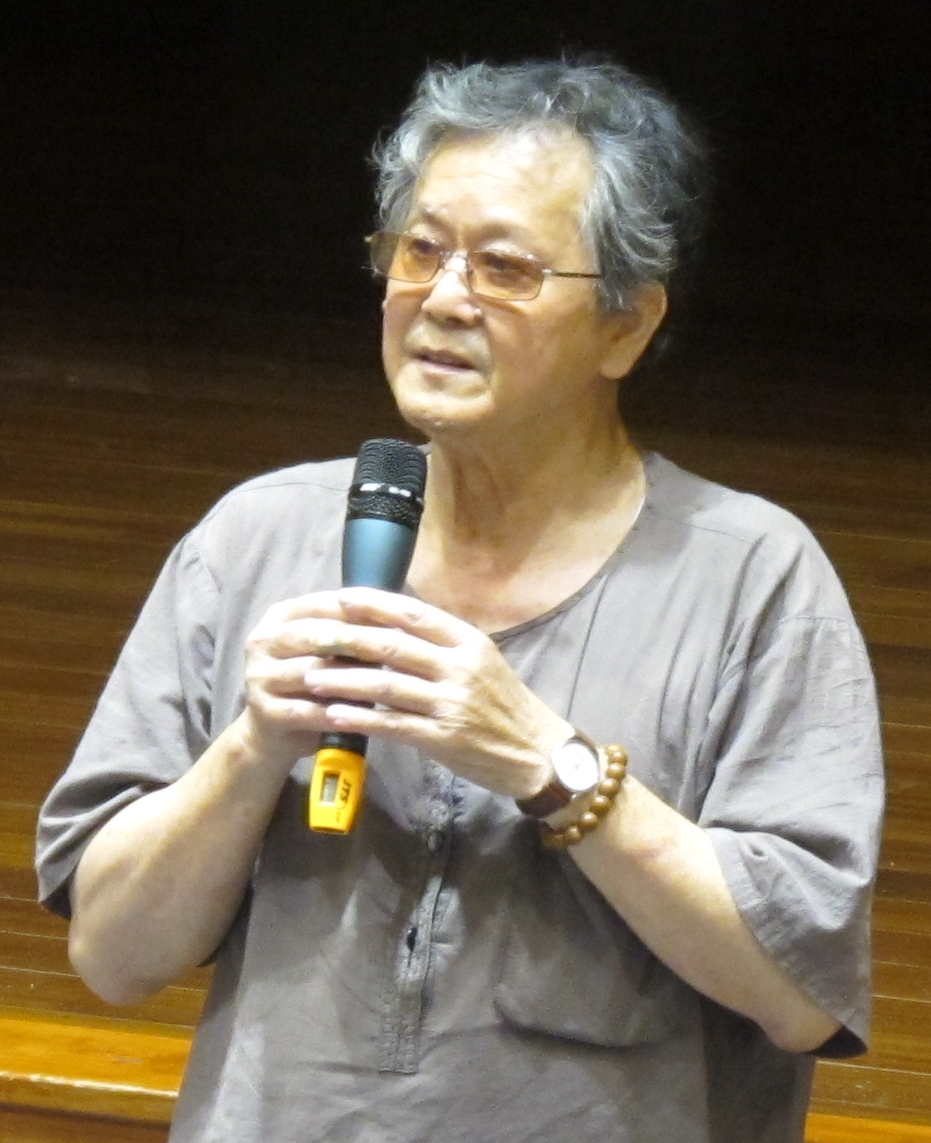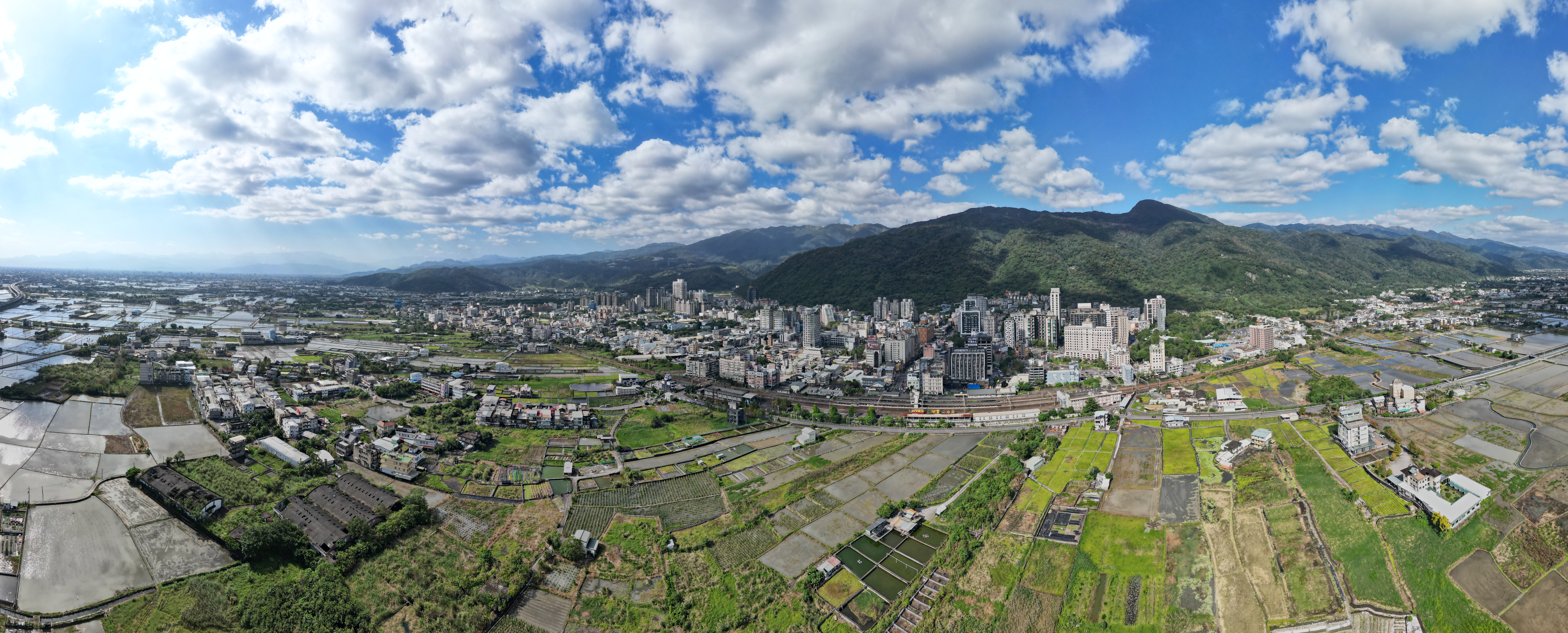|
Strawman (film)
Directed by Wang Toon (王童; aka Wang Tong), ''Strawman'' is a Taiwanese film released in 1987. It is the first feature of Wang's “Taiwan Trilogy,'' which also includes ''Banana Paradise'' (香蕉天堂; 1989) and ''Hill of No Return'' (無言的山丘; 1992). The film adopts a comic tone to depict the hardships of life as colonizers in rural Taiwan at the height of WWII. Though not an adaptation from nativist novel like Wang's acclaimed ''A Flower in The Raining'' Night (看海的日子; 1983), which is based on the namesake novel by Huang Chun Ming (黃春明), ''Strawman''’s poor farmer family at Yilan’s Shuanglian Pi and the ridiculous journey to deliver an unexploded bomb are depicted very much in the style of Huang's nativist literature. The film won the Best Feature Film, Best Director and Best Original Screenplay in The 24th Golden Horse Awards. Plot The story is told from the viewpoint of a scarecrow on the field. The two brothers A Fa and Big Mouth were second- ... [...More Info...] [...Related Items...] OR: [Wikipedia] [Google] [Baidu] |
Wang Toon (director)
Wang Tong or Wang Toon (born Wáng Zhōnghé, April 14, 1942) is a Taiwanese director who started his career as an art director and production designer and later became a film director and educator. He started working in the Central Motion Picture Corporation (中影股份有限公司) in the department for art and costume design in 1966. He won the 13th Golden Horse Award for best art direction in 1976 for ''Forever My Love'', directed by Pai Chingjui (白景瑞). He demonstrated his talent as a film director with his first feature, ''If I Were for Real'' (假如我是真的), which won him four awards, including Best Narrative Film, Best Leading Actress, Best Supporting Actress and Best Adapted Screenplay in the 18th Golden Horse Award in 1981. Between 1981 and 2015 he directed 13 feature films, 2 animation feature films, and 1 documentary. His achievement and contribution to Taiwan cinema for almost 60 years was recognized by the 56th Golden Horse Lifetime Achievement A ... [...More Info...] [...Related Items...] OR: [Wikipedia] [Google] [Baidu] |
Wang Shaudi
Wang Shaudi () is a Taiwanese film and television director, writer, and producer. She also taught film courses previously at the Taipei National University of the Arts (TNUA) and the Chinese Culture University (CCU). She works in both documentary filmmaking and fictional storytelling. Her works mostly focus on depicting local society and personal connections through dramatic storytelling. She has been involved in productions such as '' Life Plan A and B'', ''1000 Walls in Dream'', and ''Tropical Fish''. She has won multiple awards for her works including '' Yours and Mine'' for Best Screenplay at the Taipei Golden Horse Film Festival and '' Grandma and Her Ghosts'' for Best Film at the Taipei Film Festival. In 2014 she was presented with the Taiwan National Award for Arts for her contributions to filmmaking. Biography Wang Shaudi was born in Taipei, Taiwan, in 1953. She completed her undergraduate degree in Theater Arts at the Chinese Culture University (CCU) before pursuing a mas ... [...More Info...] [...Related Items...] OR: [Wikipedia] [Google] [Baidu] |
Central Motion Picture Corporation
Central Motion Picture Corporation (CMPC; ), also known as Zhong Ying () was established in 1954. It was formed through the merger of the Agricultural Educational Film Company and Taiwan Film Corporation. Like the China Television Company and the Broadcasting Corporation of China, it was operated under the party of Kuomintang (KMT) as well as the government. During its early years, CMPC's film production and activities were closely linked to the government's policies. In 1974, CMPC constructed Chinese Culture and Movie Center (), the largest outdoor production studio in Asia at the time. With its professional film production talents and facilities, CMPC produced many notable films and was the only comprehensive film production company in Taiwan. In 2005, CMPC was privatized under the Chen Shui-bian administration. KMT withdrew from CMPC's controlling ownership. In 2009, became the chairman of CMPC. He revitalized the original film resources and restored the existing film post-p ... [...More Info...] [...Related Items...] OR: [Wikipedia] [Google] [Baidu] |
Huang Chun-ming
Huang Chun-ming (; born 13 February 1935) is a Taiwanese literary figure and teacher. Huang writes mainly about the tragic and sometimes humorous lives of ordinary Taiwanese people, and many of his short stories have been turned into films, including ''The Sandwich Man'' (1983). Career Born in Ratō Town, Taihoku Prefecture, Japanese Taiwan (modern-day Luodong, Yilan, Taiwan), Huang began his higher education career at a college in Taipei but, after a series of transfers, ended up graduating from National Pingtung University of Education in southern Taiwan. He is a writer of broad interests and remarkable versatility, but he is first of all a short story writer. During the 1960s as a major contributor to the influential ''Literature Quarterly'', Huang was hailed as a representative of the Taiwan Nativist Literature movement that focused on the lives of rural Taiwanese people. In more recent works he has turned his attention to urban culture and life in Taiwan's growing citi ... [...More Info...] [...Related Items...] OR: [Wikipedia] [Google] [Baidu] |
Yilan County, Taiwan
Yilan, alternately spelled I-lan, is a County (Taiwan), county in northeastern Taiwan. Yilan is the northernmost county on the island of Taiwan, with a population of 450,031. Its seat is located in Yilan City. Before the Han Chinese Wu Sha led his company into large-scale reclamation in today’s Yilan in 1787, the area was mainly inhabited by the indigenous Kavalan people. During the Taiwan under Japanese rule, Japanese rule, much of the present day Yilan County was part of Taiwan under Japanese rule, Japan within its Taihoku Prefecture. When the Republic of China (1912–1949), Republic of China took over Taiwan in 1945, it became part of Taipei County until 10 October 1950 when 12 southeastern townships of Taipei County split off to form the present day Yilan County. Name The name ''Yilan'' derives from the Taiwanese indigenous peoples, indigenous Kavalan people. Other former names in reference to this area in the Yilan Plain include ''Kabalan'', ''Kavalan'', ''Kavaland'' ... [...More Info...] [...Related Items...] OR: [Wikipedia] [Google] [Baidu] |
24th Golden Horse Awards
The 24th Golden Horse Awards (Mandarin:第24屆金馬獎) took place on October 29, 1987 at the Taipei Municipal Social Education Hall in Taipei, Taiwan Taiwan, officially the Republic of China (ROC), is a country in East Asia. The main geography of Taiwan, island of Taiwan, also known as ''Formosa'', lies between the East China Sea, East and South China Seas in the northwestern Pacific Ocea .... Winners and nominees Winners are listed first and highlighted in boldface. References 24th 1987 film awards 1987 in Taiwan {{film-award-stub ... [...More Info...] [...Related Items...] OR: [Wikipedia] [Google] [Baidu] |
Yang Kuei-mei
Yang Kuei-mei (; born 6 September 1959) is a Taiwanese actress and television host. She has had starring roles in '' Eat Drink Man Woman'', '' Vive L'Amour'', and '' The Hole''. Yang has received several awards and a lot of nominations for her acting. She was named Best Asian Actress at the 1999 Singapore International Film Festival for ''The Hole'' ("For the subtlety and sophistication of her performance in the role of a woman determined to hurdle the stresses of urban life"). She also won the Best Actress award at the 2004 Golden Horse Film Festival for her role in ''The Moon Also Rises''. She won Golden Bell Awards Best Leading Actress in a Television Series for ''Heaven Loves Good Men'' in 1999. In 2023, Yang holds the record for the most Best Performance awards winner at the Singapore International Film Festival after winning it four times. Filmography Film Television series Variety and reality show Awards and nominations References External links * * ... [...More Info...] [...Related Items...] OR: [Wikipedia] [Google] [Baidu] |
Ko Chun-hsiung
Ko Chun-hsiung (; 15 January 1945 – 6 December 2015) was a Taiwanese actor, director and politician. He had been acting since the 1960s and had appeared in more than 200 films. His career accolades included three Golden Horse Awards, two Asia Pacific Film Festival Awards for Best Actor, a Panama International Film Festival Award for Best Actor. In 2005, Chinese Film Association of Performance Art named Ko on the list of 100 Outstanding Artists in Chinese Film (1905 - 2004). Life Early life and education Ko was born in Kaohsiung. During Taiwan under Japanese rule, he attended Kaohsiung No.2 School and graduated from National Taiwan University of Arts, he also studied at the University of Tokyo and St. John's College, University of Hong Kong. Acting career Ko began his career by appearing in small roles before 1965. He appeared in '' The Silent Wife'' later that year. In 1967, Ko starred as Feng Ze in Ching-Zue Bai's ''Lonely Seventeen'', for which he won his first Best ... [...More Info...] [...Related Items...] OR: [Wikipedia] [Google] [Baidu] |
Su'ao
Suao Township (), alternately romanized as Su-ao or Su'ao, is located in southern Yilan County, Taiwan, is an urban township that is famous for its seafood restaurants and cold springs. It is a terminus of National Highway No. 5, the Suao-Hualien Express Way, and the North-Link Line of the Taiwan Railway Administration. It also has two large harbors: Suao Port, a seaport that also houses a naval base, and Nanfang-ao Port, a major fishing port of Taiwan. History During Japanese rule, the area was established as , Suō District, Taihoku Prefecture. After World War II, the town was converted to a township under Taipei County. In 1950, the township was put under the newly established Yilan County. Demographics As of September 2023, Suao had 14,533 households and a total population of 37,602, including 18,520 females and 19,082 males. The population of Suao Town has been decreasing on average since 1981. Villages The township comprises 26 villages: Aiding, Cunren, Dingl ... [...More Info...] [...Related Items...] OR: [Wikipedia] [Google] [Baidu] |
Language Policy In Taiwan During Martial Law
During the martial law in Taiwan, martial law period in Taiwan, a Standard Chinese, Mandarin Monolingualism, monolingual policy was implemented in Taiwan by the Kuomintang. The policy was formulated as a political goal to unite the island. However, the demotion of prior local languages into "dialects" across cultural and educational landscapes resulted in a pushback of the policy and eventually rescinded as Taiwan democratized. Background Prior to the martial law, Taiwan was ruled Taiwan under Japanese rule, as a Japanese colony from 1895 to 1945. During the rule, the Japanese colonizers imposed a policy of Japanization, including a monolingual policy. The policy was initially nonmandatory, but quickly escalated towards the end of World War II in order to turn Taiwan into a military base. However, the ban of native languages in the Japanese monolingual policy lasted for only a few years within the war period. Most of the native population had not been significantly affected and we ... [...More Info...] [...Related Items...] OR: [Wikipedia] [Google] [Baidu] |



